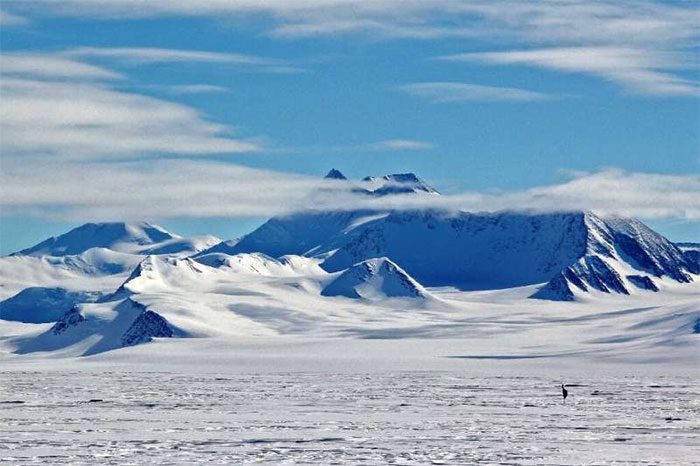An international team of scientists has successfully stored ancient ice samples from the Arctic for research purposes.
Eight researchers from France, Italy, and Norway have camped in the Svalbard archipelago of Norway for nearly two months, braving storms and risks to preserve ancient ice samples that can be used to analyze Earth’s climate in the past and chart the devastating impacts of human activity.

Glacier in Antarctica on September 14, 2017. (Illustrative photo: AFP/VNA)
The team of scientists from the Ice Memory Foundation has drilled three ice cores measuring 50-75 meters long in Svalbard. These samples will be preserved for future scientific analysis at a research station in Antarctica.
Chemical analysis of such deep “ice cores” will provide valuable data about climate and environmental conditions over the centuries. This is indeed a race to preserve the “frozen memory.” Experts warn that as global temperatures rise, melting water will seep into ancient ice, threatening to destroy the geochemical data it contains before scientists can collect it.
Daniele Zannoni, a team member from Ca’ Foscari University in Venice, stated: “Seeing water in the glacier has given us the clearest evidence of the impacts that severe climate change is causing in the Arctic.”
Human-induced carbon emissions have caused the Earth to warm by 1.15 degrees Celsius since the industrial revolution that began with fossil fuel use in the 19th century. Studies suggest that the Arctic is warming 2 to 4 times faster than the global average.
According to UN data, 40 “strange glaciers” around the world are currently an average of 26 meters thinner than they were in 1970.
Jerome Chappellaz, President of the Ice Memory Foundation, noted that there is a race among researchers studying glaciers, who are “witnessing their primary material disappearing forever from the Earth’s surface.” He emphasized: “It is our responsibility as glacier researchers of this generation to ensure that part of it is preserved.”
Anne-Catherine Ohlmann, Director of the Ice Memory Foundation, stated: “If we lose such stored samples, we will lose the memory of human-induced climate change. We will also lose important information for future scientists and policymakers who will have to make decisions for societal prosperity.”


















































